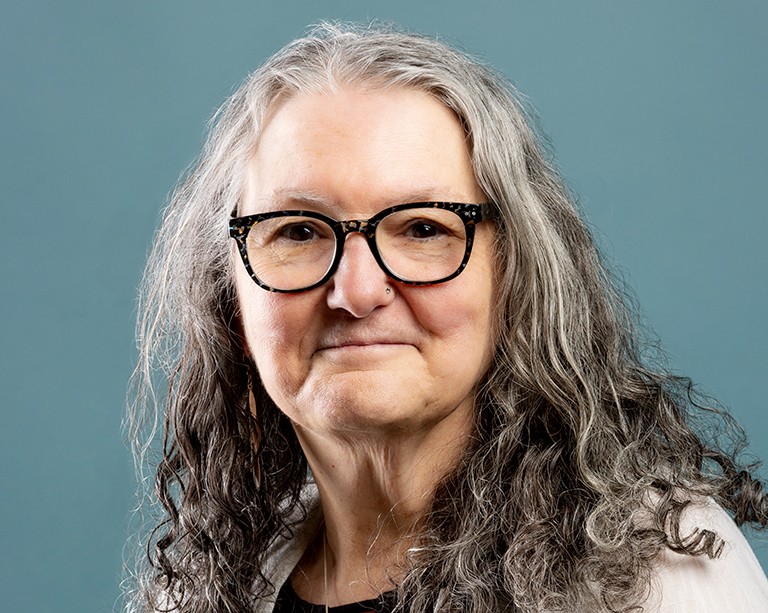Blog post
Contemplative pedagogy and practices spotlight: Dr. Rosemary C. Reilly

Dr. Rosemary C. Reilly, Full Professor in Applied Human Sciences has embraced contemplative practices as a way of being. By incorporating these activities into her courses, she encourages students to adopt life skills that can enhance learning outcomes, cultivate self-acceptance, foster a mindful presence, and nurture connections among peers. These are beneficial not only in academic endeavors, but also in future professional careers and interpersonal relationships.
What motivated you to use contemplative practices in your teaching?
With approximately 15 years of meditation experience, Rosemary has personally witnessed the positive impacts these practices have on reducing stress levels and enhancing her well-being. Recognizing the growing challenges that students face with anxiety and mental health struggles, she decided to introduce these beneficial practices into her courses. Rosemary is conscious of the demanding lives students lead, juggling various responsibilities and relationships. The activities she introduces serve as a valuable way of encouraging students to pause and cultivate inner stillness, even if only for 5 or 10 minutes in their busy day. Students can then take these skills into subsequent courses and apply them in their personal lives.
Practices
Rosemary’s primary goal in integrating contemplative practices is to enhance student learning. Activities such as box breathing, moments of stillness, reflective or “flow” writing, contemplative art, and other practices, allow students to become present and grounded so they are more receptive in class, as well as encouraging them to employ alternative ways of knowing. By aligning her practices with a clear purpose, Rosemary optimizes students’ learning outcomes without compromising the coverage of course content. For instance, in one of her graduate courses, Rosemary uses an activity called ‘mindfully eating a piece of fruit’. Students choose a preferred piece of dried fruit and are guided to engage all five senses, recording their reflections and experience while exploring the fruit. This activity aims to instill mindfulness, presence, and noticing skills, which are fundamental for success in their future professional endeavors. In other courses, Rosemary may guide students through a loving-kindness meditation, encouraging them to take a moment to think of others and send them positive thoughts. This practice is useful for diffusing tension during classroom discussions marked by disagreement, fostering a sense of acceptance and connection among students.
Benefits
For Rosemary, using contemplative practices is a way of helping students to facilitating change in their own lives, equipping them with tools that prove beneficial both within and beyond the classroom. Many of these activities help students alleviate some of their stress by providing them with brief moments for calm reflection, some time to emotionally self-regulate, and a way to let go of their distractions. Consistent engagement with these techniques allows her students to feel peaceful, more at ease and focused in class. Feedback from her students highlights the impact of these practices, noting their role in maintaining a positive mindset and supporting overall mental wellness.
Challenges and limitations
When considering using contemplative practices in the classroom, instructors must be aware of the challenges related to cultural and spiritual appropriation. However, by cultivating a personal practice with a sustained commitment, they are then sharing these practices as authentic members of a community. Consistent dedication to a practice not only helps prevent instances of appropriation but also contributes to instructors being in the positive mental state essential for effectively working with students. An additional challenge is that students may show a lack of interest in these practices. Rosemary addresses this by underscoring that students have the freedom to participate or not, and in a way that best suits them. This approach ultimately ensures that students are getting the maximum benefit from these practices and permits activities to be tailored to the individual’s needs.
Advice on implementing these practices in your teaching
Rosemary underscores the importance of instructors being familiar with trauma-informed practices, since approximately 20% of students in any given course may be survivors of violence. Being mindful of the practices introduced into the classroom is crucial, as well as steering clear of those that could potentially trigger survivors, such as body scans or activities that focus on an aspect of their body. To address this, Rosemary uses nature sounds, music, or external objects, such as smooth stones, in her courses to allow students to focus on something external.
Participating in the Faculty Interest Group on Contemplative Pedagogy at Concordia is an excellent way to become acquainted with these practices and how they might enhance student learning in your courses. Within this welcoming community, there is a valuable network of individuals from whom you can learn insights and practices that align with yourself and with student learning objectives. The adoption of these practices extend beyond being a mere tool; they are a way of being in the world.
Spotlighting Contemplative Practices at Concordia
This is part of a blog series celebrating Concordia’s teaching excellence and pedagogical innovation. This series highlights how educators from various disciplines are integrating contemplative pedagogy and practices into their courses to enhance student learning, foster compassionate classroom environments, and support the well-being of both students and educators.
By intentionally using the learner-centered approaches that characterize contemplative pedagogy, these educators encourage students to cultivate inner stillness, focused attention, self-reflection and self-acceptance while nurturing peer connections and cultivating lifelong skills that are beneficial within and beyond the classroom.
Curious to learn more? Join us at the Contemplative Pedagogy Faculty Interest Group to connect with colleagues from across disciplines, explore the work of contemplative pedagogy scholars, and re-energize your relationship to teaching and learning.

